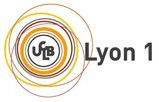Introduction to the webinar / Introduction to complexity theories / Cybernetics and Wicked Problems
11 January - from 11 am to 12.30 pm :
- "Introduction to the webinar", Fabrizio Li Vigni (Article Fabrizio Li Vigni : here) & Pablo Jensen
- "Introduction to complexity theories, Fabrizio Li Vigni
- "Cybernetics and Wicked Problems", Andy Pickering (Article Andrew PICKERING : here)
------> video available : HERE
gordon pask and the cybernetic method - andrew pickering
In 1955 Stafford Beer defined cybernetics as the science of 'exceedingly complex systems'—wicked systems we cannot understand a priori. Many of the systems we struggle with in the world today fall into this category, so it is interesting and important to think about how to engage with them. In 1958 Gordon Pask contrasted the cybernetic method appropriate to such systems with the scientific method. The cybernetician aims to 'maximise' interaction with an assemblage, while the scientist aims to 'minimise' it (hypothesis-testing). Unfortunately, Pask's discussion relates to his very ambitious (and unsuccessful) attempts to develop a structure of metal threads to replace the human management of a factory, which I find impossible to follow in any detail. This talk therefore focusses on a much simpler real-world example, the adaptive management of the Colorado River, and seeks to clarify, expand and possibly correct Pask's image of cybernetic method. Pask saw this method as a way of developing a 'language' appropriate to managing an exceedingly complex system, and I show that 'language' here has to be understood as a 'vocabulary' of patterned actions—a 'conversation' of actions, not words. Pask claimed that such conversations amount to building up a 'concept,' while I argue that they are not oriented to concept-formation but aim instead at a choreography of agencies (a multiplicity of river flows, sediment deposition, dam operations)—in a process that, following Heidegger, I have previously referred to as poiesis. My principal conclusion is, then, that we need to organise our dealings with complex systems in performative and choreographic (rather than scientific and representational) terms. I make a further post-Paskian distinction between science and cybernetics. If science aims at 'detachable' and dualist mechanisms (machines that dominate nature and function independently of us), the cybernetic method gears continuing human actions into nature (the timing of water flows from dams in relation to river-flooding, say). The cybernetic method thus aims at a different sort of end-state from conventional science. If time permits, I will discuss more examples, including psychiatry (also mentioned by Pask) and anti-psychiatry.
Article Andrew PICKERING : here









